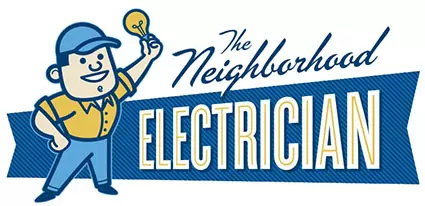Home Electrical Repair Basics: What You Need To Know Before Taking On A DIY Job
Electrical work can be a dangerous job, and it’s not something to be taken lightly. But if you’re up for an afternoon of DIY, then home electrical repair is a great place to start. There are some basics that you need to know before you take on a job of any kind, so let’s go over them here. From safety tips to common repairs and more, this blog post will cover everything you need to know before undertaking a home electrical repair job so that you can do it with confidence and peace of mind.
What are the most common electrical repairs?
The most common electrical repairs are replacing light fixtures, installing new outlets, and fixing faulty wiring. Replacing light fixtures is a relatively easy repair that can be done by almost anyone. Installing new outlets is a bit more challenging, but still within the realm of do-it-yourself projects. Fixing faulty wiring is best left to a professional electrician.
What tools do you need for electrical repairs?
In order to complete most electrical repairs, you will need a few basic tools. These include a screwdriver, wire strippers, pliers, and a voltmeter. You may also need a hammer, saw, and drill, depending on the extent of the repair. It is always best to consult with a professional before undertaking any electrical repairs to ensure that you have the proper tools and knowledge to complete the job safely.
How to troubleshoot an electrical problem
Before taking on a DIY electrical repair job, it’s important to know a few basics about electricity and how it works. This will help you troubleshoot any electrical problems you may come across.
First, it’s important to understand that electricity is a flow of electrons. In order for electricity to flow, there must be a complete circuit with no break in the path. If there is a break in the circuit, the flow of electrons will stop and the circuit will be broken.
Second, you need to know how to use a multimeter to test for voltage, resistance, and continuity. A multimeter is an essential tool for any electrician, and can be used to test for a variety of electrical problems.
Third, it’s important to know how to safely work with electricity. Always make sure you have the proper safety gear before starting any electrical work. And always turn off the power at the breaker box before starting any work on an electrical circuit.
By following these tips, you’ll be well on your way to successfully troubleshooting any electrical problem you may come across in your home.
Tips for avoiding electrical hazards
1. Always turn off the power before working on any electrical project.
2. Use extreme caution when working around wet areas. Water and electricity do not mix!
3. Inspect cords and plugs regularly for signs of wear or damage, and replace them if necessary.
4. Never overload outlets or extension cords.
5. Keep flammable materials away from electrical sources.
6. Be careful not to nail or staple wires into place – this can damage the insulation and create a fire hazard.
7. If you don’t feel confident in your ability to complete an electrical repair safely, it’s best to call in a professional electrician.
When to call a professional electrician
When it comes to home electrical repair, there are some jobs that are best left to a professional electrician. If you’re not sure whether or not a job is something you can handle yourself, it’s always best to err on the side of caution and call in a professional. Here are some situations when you should definitely call an electrician:
-If you’re dealing with any type of live wire, never attempt to repair or replace it yourself. Always call in a professional electrician who is trained and equipped to deal with live wires safely.
-If you don’t have experience working with electrical wiring, it’s best to leave any repair or replacement job to someone who does. Attempting to do electrical work without proper training and experience can be extremely dangerous.
-If you’re unsure of how to properly complete a repair or replacement job, it’s best to call in a professional electrician rather than risking doing the job incorrectly and potentially causing further damage or even injuring yourself.
Conclusion
Home electrical repairs can be a daunting task, but with the right information and knowledge, they don’t have to be. We hope this article has given you an idea of what you need to know before undertaking any home electrical repair projects yourself. If at any point during your project you feel overwhelmed or out of your depth, it is best to call in a professional electrician for help. With their expertise and advice, you will be able to complete your project safely and quickly!

